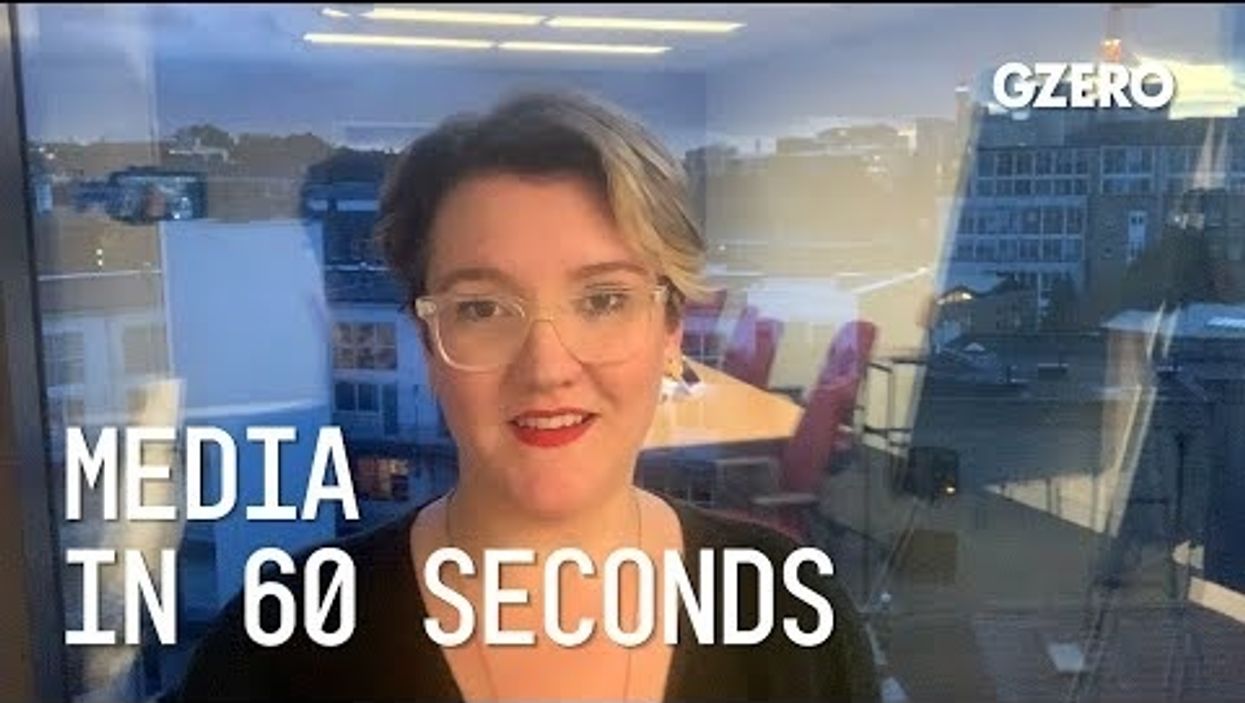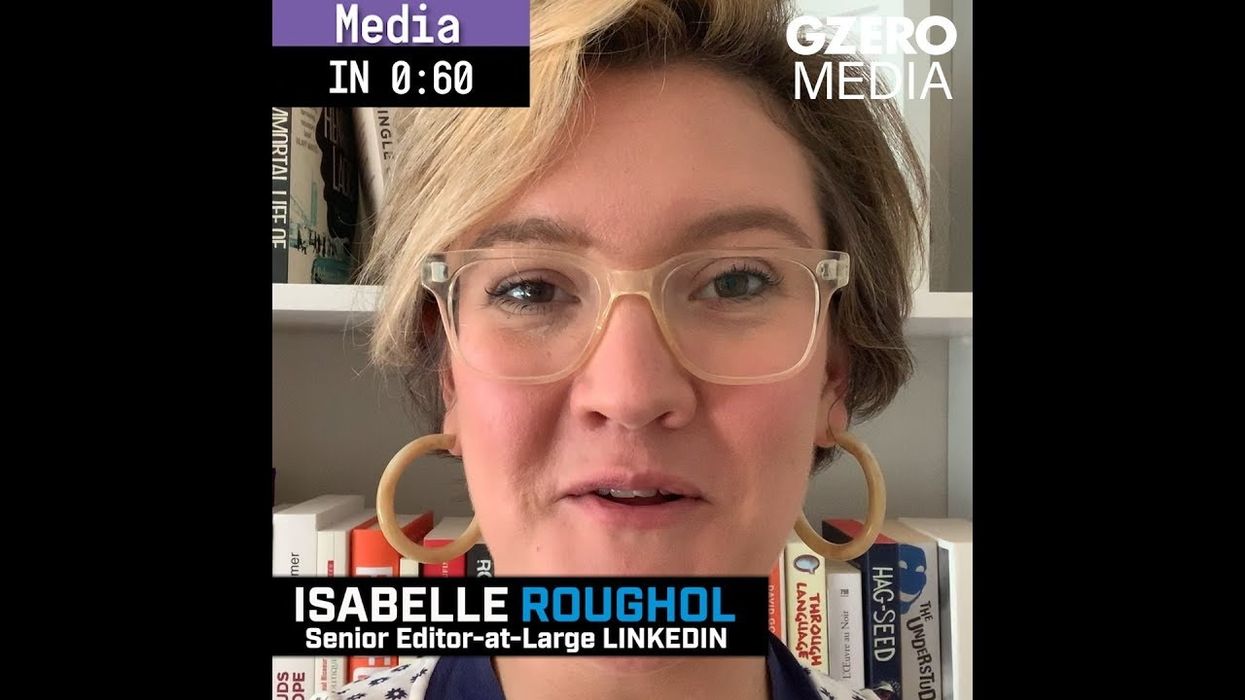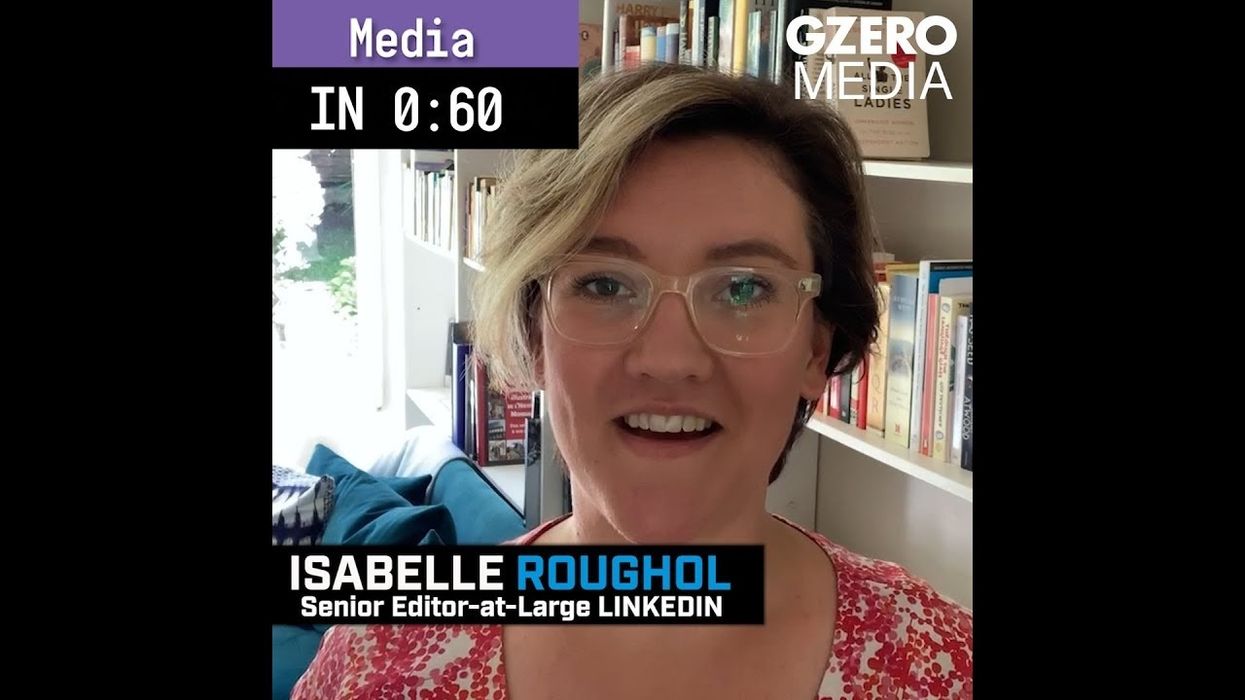Trending Now
We have updated our Privacy Policy and Terms of Use for Eurasia Group and its affiliates, including GZERO Media, to clarify the types of data we collect, how we collect it, how we use data and with whom we share data. By using our website you consent to our Terms and Conditions and Privacy Policy, including the transfer of your personal data to the United States from your country of residence, and our use of cookies described in our Cookie Policy.
Media
Why do journalists keep sources anonymous?
So, anonymity can be granted for a number of reasons. The main one is a risk of retaliation against the person, against their job, against their personal safety. For instance, if you report in a war zone or on a crime victim. It can also be to protect vulnerable people such as children, or if it's just the only way to get the information out.
Now, here's a common misconception: an anonymous source is not someone calling the newsroom anonymously. The journalist, often their editor, know who the person is and is able to judge their motives and their reliability. Now, the rules were written in an analog age. Today, the responsibility to the people that you name is so huge. It's going to live on in their Google search results forever. It's not just going to disappear with the next day's paper. But also, keeping people's trust in an age of misinformation is really important and difficult and anonymous sources unfortunately hurt that trust because readers cannot judge and have to take the journalist on faith.
In political journalism especially, we're seeing perhaps too many anonymous sources, anonymity granted in exchange for access, which allows politicians to float their message without consequences. But investigative journalism does not exist without anonymous sources. Just think back to Watergate as the key example. There is information that needs to come out and will not come out without anonymous sources.
So, when a journalist protects a source, it goes beyond their professional reputation. It goes beyond that source's personal safety. It's about preserving an ecosystem in which important information to our democracies can come out.
Is it really an absurd request to ask sports writers to stick to sports?
This isn't going to be just 60 seconds, so bear with me. On the face of it, no, absolutely not. We're talking about Deadspin, a sports blog which lost all of its staff, who resigned after ownership gave them a mandate to, quote-unquote, "stick to sports," and fired an editor who would not stick to that mandate. Everyone else resigned. On the face of it, not stupid. Ownership says, "hey, we're a sports site, that's why people come to us. That's how we get most of our traffic and our advertising revenue and why bother doing anything else?"
But actually, first, the numbers don't support that. The Los Angeles Times did an analysis of the traffic numbers at Deadspin. They can get a broader audience and as big or bigger numbers from the very, very few non sport-related stories that they do. But beyond that, it's a question about, "Does ownership get to decide what editorial does?" Owning a media company is not like owning any other kind of business. The owners do not decide what the writers or the editors do in their work. That might sound weird to you, but that is the standard for American media. It hasn't always been the case. In fact, it's a bit of a blip in history, if you think back on the days of a Pulitzer and Hearst, they definitely decided what went into their newspapers. It may change again. In fact, the way I see it, it is currently changing, but that is currently the standards that American journalists expect to work under. And when they don't get that level of independence, they are likely to resign, which is not an easy decision to make. It is not a good job market for writers and editors right now. So they've done that. Now, the problem that you have in media — print originally and increasingly digital as well — is that as they struggle economically, they get sold off. And they get sold off to private equity and further and further away from people who know media, or even like media and the people who work in it. So, that's why you're seeing increasing conflict between journalists and the people who employ them.
Now, you can say that ownership was right and they get to do whatever they want to do with their business. You can say that journalists were right and they get to write independently. But you know what? In any business, adopting a strategy that you know is going to anger your staff and cause you to lose all your talent, your irreplaceable talent… Because the Deadspin brand is the people who write for it. It's not like Sports Illustrated — and go watch that episode because that's a whole other story — it is not like Sports Illustrated, you don't have a brand that you can stick on a mug and sell for $9.99 at Yankee Stadium. You don't have a back archive of great sports photography or soft porn swimsuit issues. You have writing. And so when you lose all your writers, you essentially own a dead business. So congratulations. You were right. You own a dead business. Not a good strategy. So, it is absurd. And that will be my final word, in three minutes.
Why is The Guardian no longer using the words "climate change?"
So, The Guardian made a pledge in the past week to start covering climate change, or what they now call the "climate crisis," differently. They're changing their vocabulary. They're also changing their photography away from cliché polar bears and towards more of the human impacts of environmental damage. And they're making commitments as a company to zero net emissions.
So, they're really being a bit more activist and trying to be at the forefront of how we talk about the climate emergency — or climate change. It might be surprising to my American audiences, but it's far more common in Britain for media outlets to take a stand and take a position on a particular cause. The Daily Mail, which is a right-wing tabloid, has famously had a campaign against plastic pollution for over a decade, which has actually changed attitudes. The difference with a more traditional activism is that you're still very much talking about journalism and everything being based in facts and in reporting. And in fact, The Guardian would argue that this campaign is more accurate than the more laissez-faire attitude that the media has had towards climate change in the past. So, we'll see. It's all on their website. It's worth reading about, they are being very transparent about it. That's it for this week. Talk to you soon.
How did an entire country's media spread false news for a night?
Fascinating case study in France over the weekend. For less than a day, we thought that the most wanted man in the country had been caught in Scotland. Turned out to be a case of mistaken identity. The so-called news was actually reported quite carefully at first, on Friday night with careful words. But the language quickly moved from conditional to categorical and therefore, to misinformation through human error. What you have here is the tension between being first and being right, which has always been present in journalism but is more and more as you have these 24 hour news channels, social media, and the incredible economic pressure on news sites that are advertising based and therefore click based.
So nonetheless, major mistake here. It will be interesting too, to hear more from newsrooms about the process. We've seen apologies, not tons of lifting the curtains on the process yet which would be great to see. A lot of newsrooms have said: "you know we checked with two or three other sources." What can happen is that these sources are police and they're all getting their information from the same place. So really, you only have one source. So, we'll see. That might have been what happened. It will be really interesting to hear from media. To err is human, we've all done it. In this profession, it can be quite grave, so that transparency is fundamental.
Is the Gannet GateHouse merger good or bad news for local journalism?
It's probably bad. So it's the two biggest newspaper chains in the U.S. combining. They're going to own 1 in 6 newspapers in America. The problem is we're not seeing much of a strategy here, it's really mostly a financial deal and an expensive one at that with a lot of pressure to cut costs. They're looking to save about $300 million annually. That means layoffs. That means centralizing some functions like ad sales or design editing, consolidating regionally possibly selling off newspapers, selling off real estate. The problem is a lot of these things have already happened to American newspapers and more than once. So you're really getting blood out of a stone at this point. It's not good news for the communities they cover or the people who work there.
What does the CBS Viacom merger mean for consumers?
Ultimately, it's going to further divide up the content that you love across multiple platforms. The streaming war is on! CBS and Viacom felt they had to merge in order to stand up to the bigger players in the game like Disney, Netflix, Amazon. Viacom was so far quite happy to put their content on whatever platform would have them That's probably going to change. For you, it means you have to get more subscriptions and pay more to see all of the shows that you love especially the Star Trek franchise, in this case. So unfortunately, just more expensive bills just like back in the days of cable.
That's it for this week. It's a special episode of Media in 60. It's the last one produced by the wonderful Adam Pourahmadi, who's moving on to bigger and better things. Thank you, Adam. You were a joy to work with. Godspeed. We'll take a short break and we'll be back in September with more Media in 60 Seconds.
Should journalists always publish leaks?
No, of course not. And they usually don't. There's really a lot of criteria that you're looking at, like for any story. First, is it legal in the way that information was obtained and to publish that information? It is in most countries, most jurisdictions. But you do want to make sure and if not that you have good reason to do what is essentially civil disobedience. Is it safe? There are reasons, national security especially, not to publish information sometimes. Then you want to look at the source and the information. Is it reliable? Is it verifiable? Is it newsworthy? Is it even a story and is it in the public interest to publish it? And then you want to look at the broader context.
You want to make sure that you're not being used to further anyone's political agenda, unknowingly. And if you are, at least be so knowingly and with full transparency to your readers if you consider that publishing that information to the public interest of it overrides that concern. And because I know that with this question you're getting at the leak that ousted the U.K. ambassador to the U.S. You want to be sure that you yourself do not have a political agenda as well. And I'll leave it at that.






